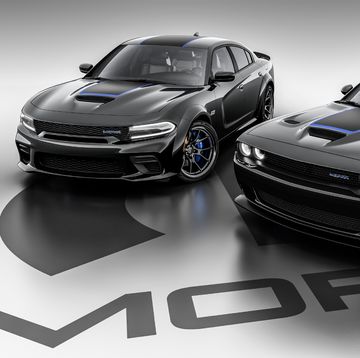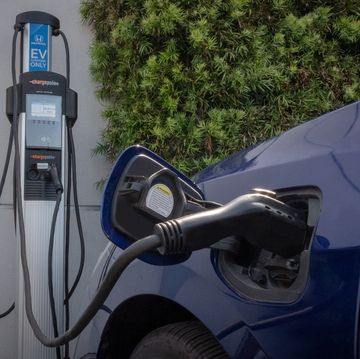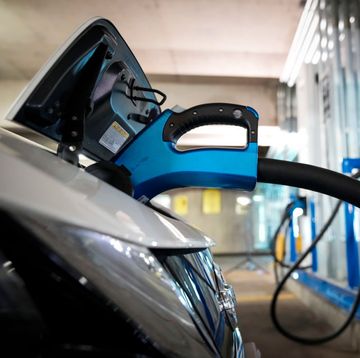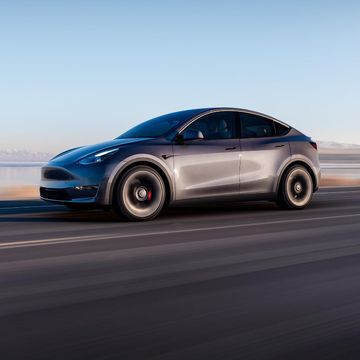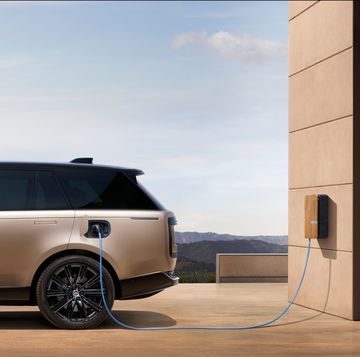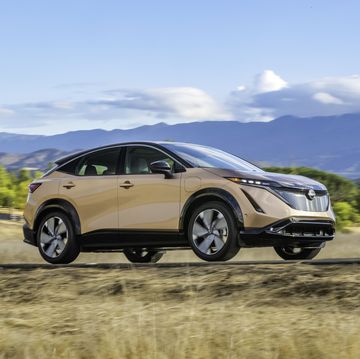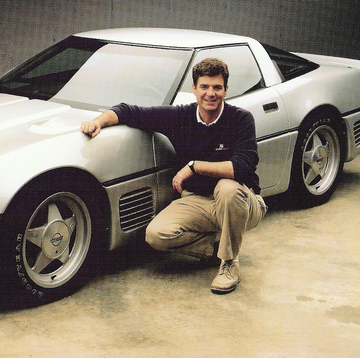- New regulations adopted by the European Commission have made intelligent speed assistance technology mandatory for all new models.
- Manufacturers will choose between four different speed warning systems, ranging from auditory alerts to automatically lifting accelerator pedals.
- Mandatory on all new cars sold by 2024, the switchable ISA technology is expected to reduce speeding by 30% and traffic deaths by 20%.
The European Union's intelligent speed assistance program took effect on Wednesday, starting a new era of enhanced safety regulations brought forward by the cluster of European nations. The program is focused on limiting speeding through four different warning systems installed in all new chassis introduced in the EU. Manufacturers are only required to pick one system and will be able to choose which of the four warning systems to install, though some have already elected to install multiple.
Each warning system functions differently with some being progressively more invasive than others. On the light end of the spectrum, some cars will note speed limits through sign-recognition cameras or GPS data and audibly alert the driver if they are exceeding them. Using the same technology, other cars will produce a vibration throughout the driver's cockpit alerting them of their speed. Alternatively, the other two warning systems rely on the tension of the accelerator pedal, known as haptic feedback and speed control function.
Haptic feedback requires the car to recognize speed signs and, if the driver is in fact speeding, automatically push back against the driver's accelerator pedal pressure. The speed control function goes one step further by cutting power input from the pedal once the speed limit is reached. It's important to note that drivers can override all four of these systems, either by acknowledging the audible or vibrating warnings or by pushing harder on the accelerator in the case of the haptic feedback or speed control function.
For many enthusiasts reading this, these technologies sound like a nightmare to the analog purists inside of us. The EU doesn't want these technologies to take human decision-making out of driving, however; these ISA systems are meant to be reminders, not restrictors.
"It should be possible to switch off intelligent speed assistance, for instance, when a driver experiences false warnings or inappropriate feedback as a result of inclement weather conditions, temporarily conflicting road markings in construction zones, or misleading, defective or missing road signs," the text of the General Vehicle Safety Regulation reads. Additionally, the regulatory requirements of the ISA system explicitly states that, "it shall not affect the possibility, for the drivers, of exceeding the system’s prompted vehicle speed."
As with all new technologies, the likelihood of real-world errors and future troubleshooting is high. Beyond technological faults, driver annoyance with auditory warnings was also considered, seeing as it may lead operators to turn the system off completely. As the program is tested, the focus on maintaining some degree of driver autonomy will be imperative to its success. The legislation was adopted by the European Commission, though it is currently under two-month scrutiny from the European Parliament and Council.
All things considered, the technology is a good-faith effort to reduce fatal crashes at a time of soaring traffic deaths. Analysis of trial runs by the European Transport Safety Council suggests that this technology will reduce speeding by 30% and traffic deaths by 20%. Manufacturers like Ford and Renault are already experimenting with the technology across the European Union and even in the United Kingdom. And while the current rule only applies to all-new models, ISA systems will become mandatory for all new cars sold starting July 2024.
Do you think anti-speed technology would work on this side of the pond? Share your thoughts on in the comments below.
A New York transplant hailing from the Pacific Northwest, Emmet White has a passion for anything that goes: cars, bicycles, planes, and motorcycles. After learning to ride at 17, Emmet worked in the motorcycle industry before joining Autoweek in 2022. The woes of alternate side parking have kept his fleet moderate, with a 2014 Volkswagen Jetta GLI and a 2003 Honda Nighthawk 750 street parked in his South Brooklyn community.



